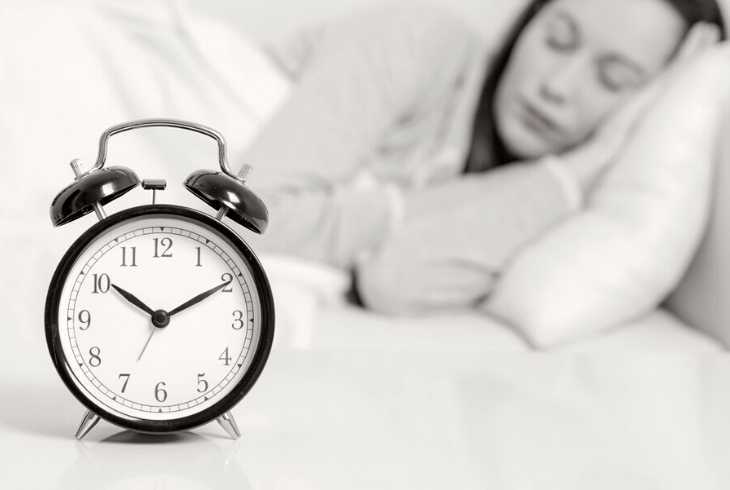These days, there are plenty of ways besides coffee to get your caffeine fix — energy drinks, tea, chocolate, soda, and bars. According to the National Consumers League, 85% of Americans consume some form of caffeine on a daily basis. Though caffeine isn’t necessarily bad for you, there are potentially negative effects if you don’t consume it responsibly.
Check out this guide on how to avoid the negative effects of caffeine and drink your morning joe in a healthy way:
Avoid Consuming Too Much

Regardless of how you’re consuming caffeine, you shouldn’t have more than 400 milligrams daily. Not everyone has the time or energy to measure the amount of caffeine in everything they are eating and drinking.
To give you a rough estimate, here’s a list of how much you would have to drink to consume 400 milligrams:
Chances are that you would have to go out of your way to drink that much caffeine. The majority of adults drink far below that amount. However, if you’re cramming for a final or have a long day at work, you can easily go overboard and drink too much.
There are five serious physical and psychological consequences of drinking too much caffeine:
Anxiety: The reason why people drink caffeine in the morning is that it causes them to feel more alert and less tired by stopping the impact of adenosine — a chemical that makes people sleepy. But there’s too much of a good thing. Consuming an excessive amount of caffeine can lead to you feeling anxious and wired. Instead of having a productive day, you will be nervously shaking — nobody wants that.
Digestive problems: Coffee can function as a laxative, releasing the hormone gastrin that makes the colon work faster. In addition, caffeine also can trigger bowel movements by causing your body to have more contractions. When you drink too much caffeine, you will be speeding up this process that will subsequently give you diarrhea. So, while coffee can be a helpful laxative, drinking a lot can give you digestive issues.
Addiction: Being overly dependent on caffeine can be unpleasant and cause you to be unable to function without it. Can you imagine going on a camping trip and feeling sluggish because you can’t drink any coffee?
High blood pressure: Since caffeine is a stimulant, it can increase blood pressure. If you’re drinking moderately, it won’t be detrimental to the health of your heart. However, you should consider how much you’re consuming especially if you have a history of high blood pressure.
Increased Urination: Caffeine is a stimulant that triggers the bladder and causes you to urinate more frequently. One study found that drinking an excessive amount of caffeine (450 mg) can increase one’s chance of getting incontinence, a condition in which one loses control of their bladder.
Don’t Drink On An Empty Stomach
Though having a cup of coffee in the morning is part of many people’s daily routines, drinking coffee on an empty stomach can lead to anxiety, heartburn, and indigestion. While coffee is fairly healthy, drinking it on an empty stomach can be an intense experience that has unattended consequences such as changing your mood.
If you have trouble eating in the morning because you feel crunched for time or generally don’t find the idea of eating breakfast to be particularly appetizing, Collagen Peptide Powder can be a good option. With your morning cup of coffee, make a quick collagen smoothie. You will notice that you will feel alert without feeling anxious. In addition, you won’t be hungry so you will be even more energized to start your day.
Don’t Consume Caffeine Too Late

As a stimulant, caffeine suppresses adenosine — a chemical that causes you to be sleepy. This can be helpful depending on the time of day. For example, if you tend to feel drowsy in the morning and after having lunch, caffeine can assist you by making you feel more alert.
However, this can also lead to you having trouble sleeping. In general, adults are supposed to sleep anywhere between 7 to 9 hours a night. Having less than that can cause you to experience fatigue and frequent illnesses (colds and fevers due to a lowered immune system). In the long term, having sleep issues can cause increase your risk of heart disease, stroke, diabetes, and high blood pressure.
According to a study, having caffeine six hours before bed can decrease the amount of sleep you get by one hour. There isn’t necessarily an objective answer to when you shouldn’t drink coffee. But if you are noticing that when you drink caffeine later in the day you have trouble sleeping, you should consider setting a rule for yourself that you won’t have it after 2 PM or 3 PM. And if you are highly sensitive to caffeine, you should also avoid soda and tea as well. Even though they have less caffeine, they can also lead to insomnia.
Watch Out For Staining And Brush Your Teeth

Caffeine can also impact your dental health. Coffee has tannins, an ingredient that causes staining by making color compounds cling to teeth. This is what is commonly known as coffee stains. Though this can be unpleasant, staining can be mitigated through frequent brushing, visits to the dentist, and using an electric toothbrush. There are plenty of whitening kinds of toothpaste that can also help you decrease staining. However, if you are particularly concerned about staining, you should drink less coffee.
Get Smart About Brewing
If you’re drinking coffee that’s way too strong, you will probably feel more jittery, anxious, and stressed. Since everyone is different, you shouldn’t assume that what is just right for a roommate or a partner, will work for you. Before you start drinking coffee on a daily basis, research brewing techniques. Try out different methods, such as a stove-top percolator or a French press and see which one works best for your caffeine tolerance level.




